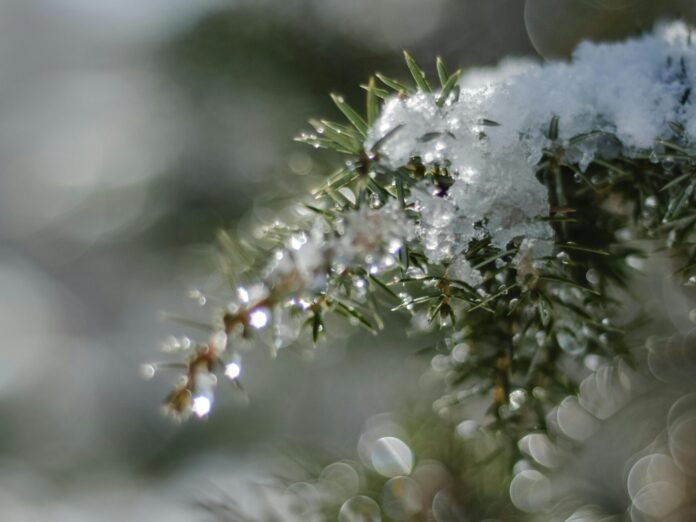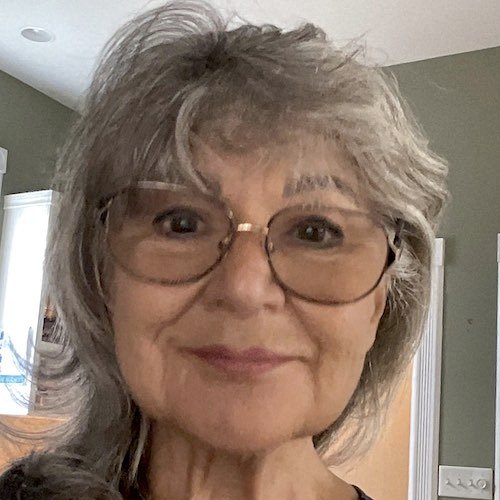This is from Sean, my ACIM friend and I call him a teacher to the teachers. This post puts me in the mind of Walt Whitman: “Do I repeat myself? Very well then I repeat myself.”
Finding the God hidden in the “now of all times”
A few years ago, my ACIM practice began stumbling in the direction of a stillness practice. I sit quietly with my eyes closed and “take this very instant, now, and think of it as all there is of time” (T-15.I.9:5). But “think” has been replaced by “give attention.”
As I become more skilled and relaxed in this practice, I realize the practical value of the Holy Instant.
Nothing can reach you here out of the past, and it is here that you are completely absolved, completely free and wholly without condemnation. From this holy instant wherein holiness was born again you will go forth in time without fear . . . (T-15.I.9:6-7).
This is true because, as Gunnar Gjermundsen observes, God is “found hidden within the now of all times” (Living on this Earth as in Heaven)
When we realize God’s healing presence, which includes the understanding that we cannot be separated from it, we realize that Heaven is a present condition presently unrealized. And the way we realize it is by submitting unconditionally to a total transformation of both heart and mind. It is in the nature of receiving a gift, rather than laboring to achieve a goal.
Nor is this an intellectual understanding brought into application. I was confused about this for years, devoted as I was to Ken Wapnick and Tara Singh. I’m not denigrating study! It’s fundamental to my identity. Nor am I valorizing activity. Rather, I am saying that something has to happen to us that neither the heart nor the mind can accomplish – or even know – on their own.
As I once said, my stillness practice involves aligning with the rhythms of Creation, from which I am not – nor are you, nor is anyone – separate. Our breathing, our storytelling and love-making, our birthing and dying, the seasons, the tides, the cycles of the moon . . . When we give attention to these things in a sustained way, we discover not so much that God is hiding but rather that we have hidden Him (or, better, we have hidden ourselves from Him, Adam and Eve-like).
And by “we” I don’t mean you and I as individuals, though we are caught up in the crisis. I mean “we” as in human beings, all of us, past and present. Our clocks and calendars, our monetary systems, our politics, our technology . . . all of these things promote – demand, really – a way of living that is fundamentally at odds with Creation. Our present chaos is not new under the sun! And revelation is always at hand.
Gjermundsen, tracking Douglas Christie’s concept of “practicing paradise,” suggests that “paradise, or the Kingdom, can be understood as an experiential reality fully inhabitable on Earth through the soul’s inner work of purification, simplification and sanctification of heart, senses, and way of life” (843).
On this view, the Kingdom is not something already realized in the past, nor awaiting the future end of time. Rather, it is going on being realized in the lifeworlds of persons who, through inner work and devotion, learn to attune themselves to the always already whole and holy beauty of the created world (843).
“. . . learn to attune themselves to the always already whole and holy beauty of the created world.” That is the prayerful way to which my study and practice of A Course in Miracles led.
Jesus proclaimed a kingdom that was near (e.g., Matthew 3:2 and 4:17) but which “does not come in a way that can be observed: one cannot say, ‘Look, it is here’ or ‘Look it is there'” (Luke 17:20-21).
How are we to understand this? What are we supposed to do with it? I can point to the lilies and peonies – they are here, they are there. What is near yet cannot be observed? What is Jesus talking about?
In stillness, we see the beautiful flower and its connectedness. The eye that perceives the flower is as miraculous as the flower, and neither can be experienced without the other. The sunlight that make both possible is equally astounding. Nor can the sun be separated from the quantum soup of the early universe, nor that soup from the mysterious logic of the Planck Epoch. When we see this connectedness – when we remember there is no separation anywhere – then “practicing paradise” becomes the happiest, most natural thing we can do. Suddenly, we have a gift we can offer to everyone.
It is easy to say this – maybe too easy. Language, as fun and interesting as it is, is actually a poor vehicle for what is being gestured at here. It can mislead and distract as easily as it can help. As physicist Wojciech H. Zurek says, we think our wordiness is sufficient to describe reality, but it’s actually not.
Philosophers try to get you to commit to a bunch of words, and all of those words dissolve when you start thinking about physics in a deep way . . . Big words are seductive but if you look at them closer, you don’t know what they mean (Gefter Trespassing on Einstein’s Lawn 227).
I am suggesting that the same is true of God and Love.
Wordiness is so integral to the way I function in the world that it’s hard and even scary sometimes to acknowledge that most of what matters – God, Love, Peace, Justice – cannot be fully compassed with words. People say sometimes, I want to write, how do I write? And my answer is always a version of, don’t talk about it. Just write. The writing will teach you all you need to know. These days, I am saying something similar to myself: stop writing about God and inner peace and just be still. Be present. God will teach you all you need to know.
Like you, I am pretty well-versed on the present moment, the now. We’ve read Eckhard Tolle and Alan Watts, Ramana and Nisargadatta, Abishiktananda and Joan Tollifson. We read A Course in Miracles; we do the lessons.
I’m grateful for all of it, for all my fellow travellers.
But in the end, all that pales to the simple practice of being present to the present, which – I speak for myself here, though I am not alone – can most readily and credibly be found by attending the rhythms of the natural world, which include us.
Don’t worry are you a body (it’s complicated), is the world real (yes but not the way we think), did the historical Jesus write A Course in Miracles (no but it’s actually better that way), are Robert Perry’s edits superior to Ken Wapnick’s (this is an unserious question and thus a distraction from the serious work of awakening), is Gary Renard a fraud (the better inquiry is why do we care) or whatever. I get caught up in that stuff all the time, as long-time readers know. It’s not a crime against God or nature! It’s just that there’s a better way, a simpler way, and that way is right in front of us. The path literally cries for us to walk it together.
It was snowing Saturday morning when I went out at five a.m. before writing this. I have been clearing the beds where the lilies, peonies and blue flag will soon blossom. The green shoots have been like emeralds jutting from the soil but this morning they were covered by enormous flakes of snow, bunching together like wool. I knelt to glimpse the intricacy of the flakes. Snow is a vast blank slate until you get close and perceive the glittering latticework of tiny individual crystals. I am never not amazed at this.
I wandered around checking on the forsythia and the hemlocks; I brought a flake of hay to the horses. The feral cat who sleeps in our barn trotted around after me. Crows called; the neighbor’s sheep gazed curiously; robins swept in and out of view.
I’m not saying it was beautiful or perfect. It’s just the way the world was at that moment. The gift was – the gift of the holy instant always is – I didn’t need it to be anything else. Thus it was holy, and you were there too.
Forgiveness shines its merciful reprieve upon each blade of grass and feathered wing and all the living things upon the earth. Fear has no haven here, for love has come in all its holy oneness (S-3.IV.2:3-4).
Thank you, as always, for being here. We are in this together and I couldn’t ask for better companions. My happiness is yours and yours, mine. In the holy instant, we offer ourselves to each other as the light in which the trail becomes clear. My gratitude has no end.
~ Sean
April 2025


